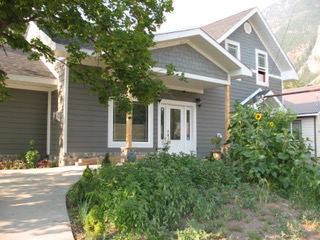Now that Doc Bonnie and her political overseers have loosened their grip on societal reins, we can look back and ask ourselves how we dealt with the pandemic. Did we respond with resolve, understanding and grace, or with a weak-kneed whimper? More important, are we prepared mentally and emotionally for the next crisis, whether local or global? Do we even acknowledge there will be another challenge to our sense of well being?
I continue to be puzzled by those who openly flaunted health regulations designed to protect us from covid 19 and its companion variants. For the better part of a year, some devoted their lives to protesting the restrictions. Were their efforts useful to themselves and society, or did they squander an opportunity to learn, to grow, and to contribute? Were they deluded and blinded by negative mental quicksand?
As we approach the end of the pandemic (in Canada), this could be viewed as a time to evaluate the thinking, assumptions and strategies we rely on in times of extraordinary challenge. There have been other societal emergencies, like the Black Plague in 1347 and the Spanish Influenza in 1918-1920. The world has also endured two global wars and the Great Depression. In 2011 parts of Japan were devastated by an earthquake and tsunami. Nearly 20,000 people lost their lives. According to Gilbert Gaul in The Geography Risk, “in the U.S. alone there has been well over half a trillion dollars in damages from hurricanes in the last two decades.” It has been said that “the reason history repeats itself is that no one was listening the first time.”
Hedley has seen no rallies protesting the restrictions. Protests have been on an individual private basis, like one neighbour who maintains the pandemic is a hoax. He refused to wear a mask unless it was absolutely mandatory, like entering a store to buy cigarettes or beer. Another is convinced the vaccines contain toxins and are a nefarious plan by Bill and Melinda Gates to depopulate the globe. A few have largely withdrawn into their private world and we don’t see them.
Do protesters believe that if they deny reality, it will cease to exist? Are they harking back to an earlier time when life was simpler, water and food tasted better, and there was a sense of purity in the land?
At the outset of my personal “look back” at the turmoil caused by the pandemic, I was reminded of the words of renowned Viennese psychiatrist, Viktor Frankl. He wrote, “Life is never made unbearable by circumstances, but only by lack of meaning and purpose.” He came to this understanding while lying naked on a cold metal table in a Nazi facility for medical experimentation. Frankl decided he would not relinquish control of his mind to Hitler’s medical goons. He focused instead on positive memories, such as lectures he’d delivered as a university professor.
Unlike the resisters, some individuals have used the approximately 15 months to create something of value. My neighbor Larry bought a house most people would have torn down. Larry had other ideas. He rebuilt the structure and added to it. “I have a compromised immune system,” he told me. “I avoid being close to people I don’t know. This building project keeps me from being bored.” From the outset of the pandemic, he has worked, pretty much alone every day, not taking a full day off even to celebrate Christmas. He has little patience for those who complain about restrictions.
Bill Carmichael and Trisha Mills also built a home. Their restaurant, the Hitching Post and their second floor residence, burned during the night a couple of years ago. With the help of a contractor, Bill and Trisha erected the shell of a quonset type structure, which will be their home when complete. They are now continuing to work on the project as they have means. In spite of considerable pain and the need for several medical procedures, they have carried on with great resolve. I haven’t heard a complaint from either of them.
For more than a year we’ve heard people say, “I can’t wait for things to return to normal.” Now we’re accepting it will be a “new normal.” Is the burning of Lytton an indication of what we should expect? Almost certainly, radical climate change will impact our future. Will we prepare, or will we deny and whimper?

